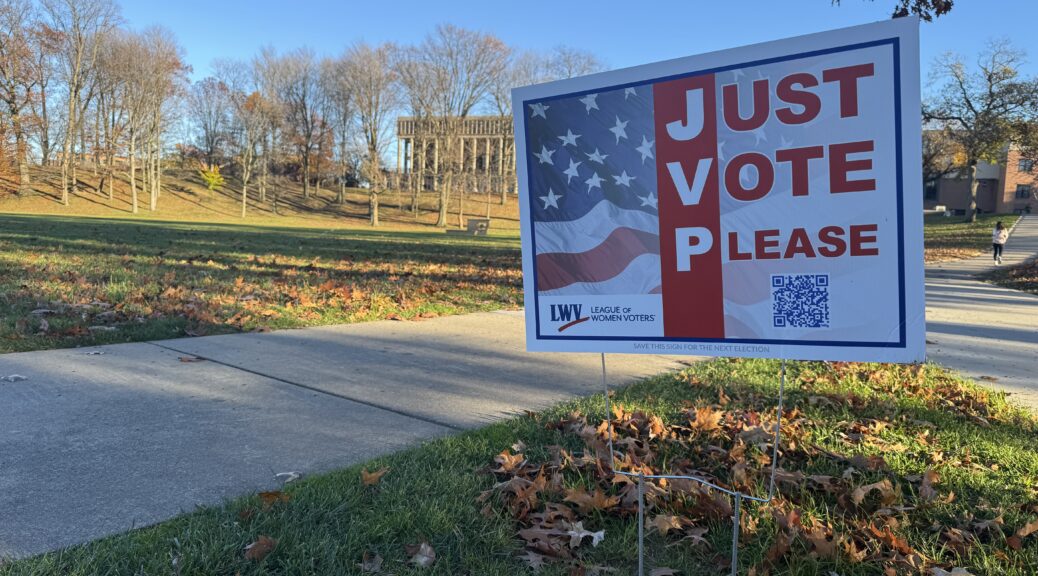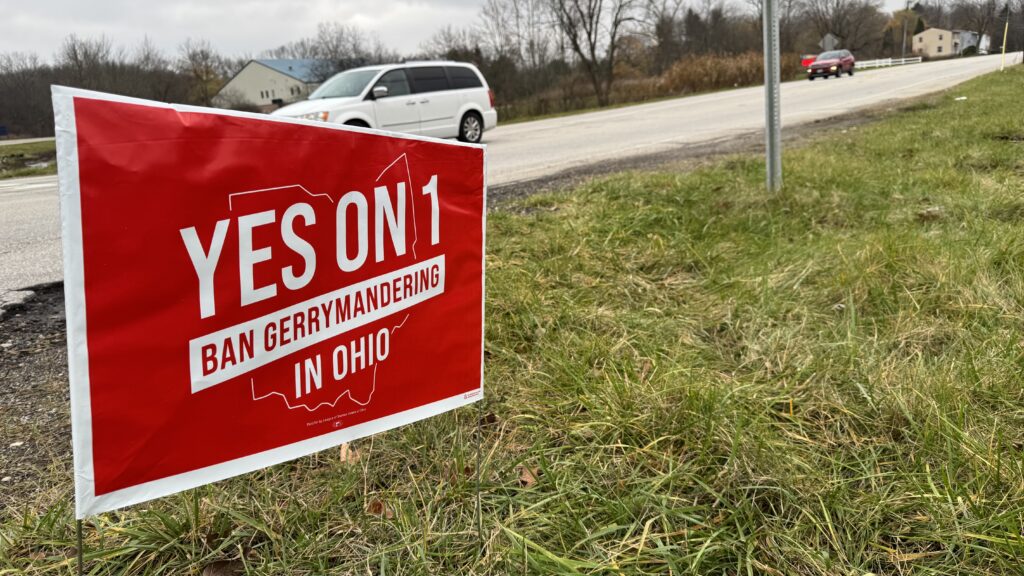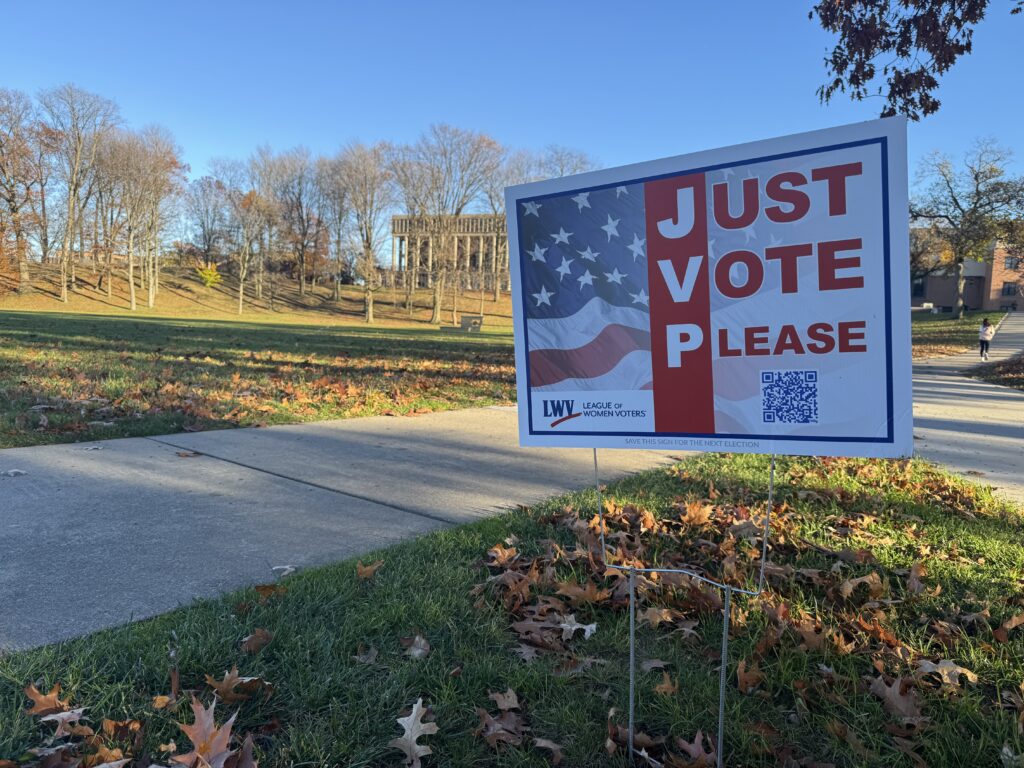
Hindsight is 20/24: Reactions to a Turbulent Election Cycle
On November 5, 2024, Americans across the country voted on issues ranging from the presidency to the future of voting. In what was seemingly a coin flip before election night, Donald Trump emerged victorious in an election that was a landslide for Republicans, as they won both Congress and the Presidency. Most surprisingly, Donald Trump won all seven swing states, something even many conservative outlets were not predicting.
Speaking to some Kent State students, however, election night was not as much of a surprise.
“I wasn’t really surprised because I knew that Donald Trump had a lot of support going into the election,” said Mo Alnaseri, a second-year professional pilot major.
Within Akron’s Bliss Institute of Applied Politics, Director Dr. J. Cherie Strachan said the institute was not surprised with the election as well.
“I’m completely not surprised at all about the outcome of Ohio elections. And all of the good public opinion polls across the board were indicating this was a margin of error race that was too close to call and that’s what we’re seeing,” said Dr. Strachan.
Atlas Intel, the most accurate pollster of 2020 according to 538, was one of these public opinion pollsters who got it right. They managed to predict Trump’s margin in Pennsylvania, Ohio, and North Carolina, supporting what Dr. Strachan said.

Within political circles, the result was a bit more complicated. H. Gilson Blair, a former democratic representative in the Ohio House of Representatives, said the election was farther apart than he expected.
“I was expecting we were gonna have a lot of recounts and it was going to be several days before we had results,” said Blair.
As for the reasons Harris lost, many news outlets pointed a finger at her comments on the daytime talk show The View, where she said, “Not a thing comes to mind,” when asked if she would have done something differently than President Biden. Blair was less confident to say that was a true moment that lost Harris the election.
“Very rarely is it one question and one moment of time that decides an election,” said Blair.
Blair continued by saying Democrats may have had a problem with the way the party handled the replacement process. Notably, Democrats did not hold a primary following Joe Biden’s withdrawal from the election, instead collectively endorsing Kamala as the candidate.
In terms of Vice Presidential picks by both parties, with Harris choosing Minnesota Governor Tim Walz and Donald Trump selecting Ohio Senator JD Vance as their running mates, Dr. Strachan said retrospect showed her they did not play a major role in deciding the election.
“The problems Harris had mobilizing people was largely in having a short window to make her case and not being able to separate herself enough on economic policy from the Biden Administration. Unless she made an egregious choice it wasn’t going to be damaging,” said Dr. Strachan.
Dr. Strachan also made the point of emphasizing that Walz was not an egregious choice. Blair, however, had a differing opinion.
“I kind of believe the Vice Presidential pick could’ve been more prudently chosen. A moderate establishment democrat, and frankly Josh Shapiro would have been my pick,” said Blair.
So, what did this election come down to? For Dr. Strachan, it was turnout.

“1 in 6 people who voted for Biden stayed home. She just was not capable of turning people out and mobilizing her own side,” said Dr. Strachan.
Politico reinforced this opinion in their recent findings. They found an 18% drop in turnout in Philadelphia. While Trump only received three more votes than 2020, Harris lost 81 votes in certain areas to Biden’s numbers in 2020. Perhaps more importantly, where turnout increased across the city, many of the votes went for Trump, particularly across the river in the Schuylkill area of Philadelphia. In the end, the urban vote simply never materialized for the Harris campaign despite their efforts.
From inside the Democratic Party, major leaders like Bernie Sanders have pointed the finger within. In a statement given the day after the election, Sanders criticized the Democratic Party for what he called an abandonment of the working class. Sanders likely noticed the gains that Trump made among blue-collar voters this election, while Harris gained among the upper class.
In the end, one thing everyone can seem to agree on is that the deck was always against Harris. Dr. Strachan, Blair, and Meghan Geist, a Kent State student working towards her doctorate in Political Science, all mentioned that a presidential campaign cannot be run and won in about 100 days.
Geist specifically said, “Vice President Harris only had 107 days to run a full Presidential Campaign, and I think this was detrimental. One hundred and seven days is simply not enough time to introduce yourself and run a Presidential Campaign for the 151 million voting Americans.”
Overall, a combination of time, choices, and turnout all turned the tide this election in Donald Trump’s favor. On November 5th, the American people showed that the Democrats as a whole missed the mark, Harris did not have time to set herself apart as a candidate, and Donald Trump reaped the benefits.



